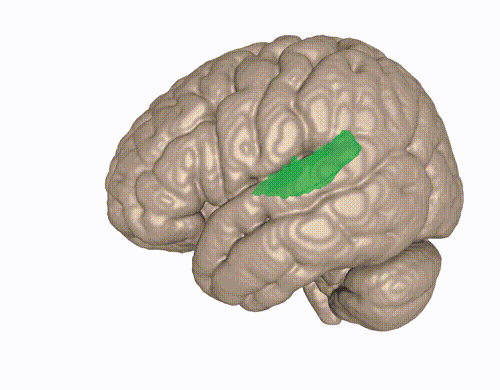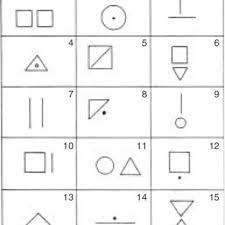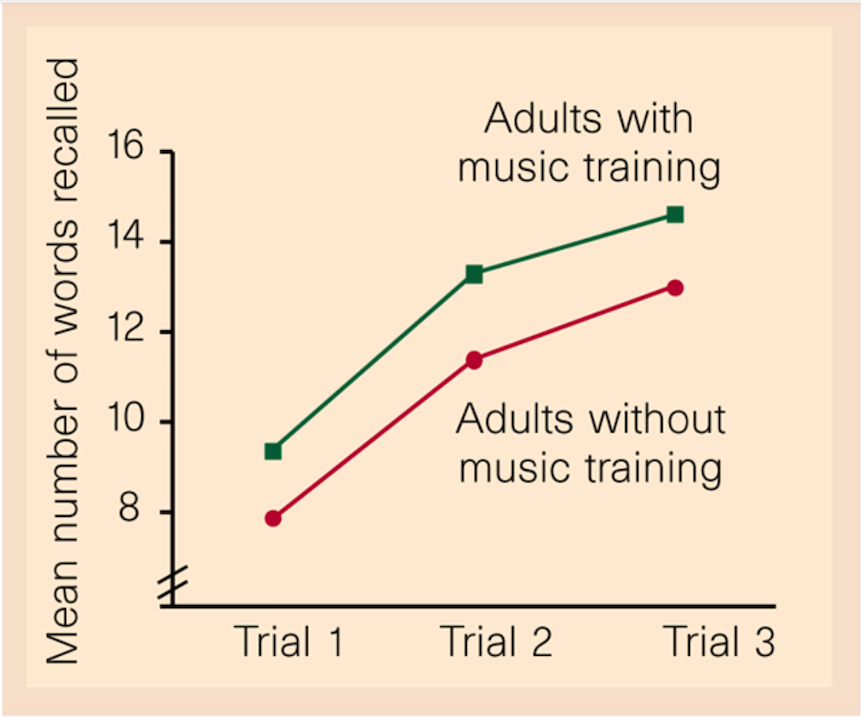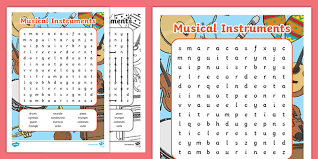Title of paper under discussion
Music training improves verbal memory
Authors
Agnes S. Chan, Yim-Chi Ho & Mei-Chun Cheung
Journal
Nature 396, 128 (1998)
Link to paper (free access)
Overview
Magnetic resonance scanning reveals that the left planum temporale, situated in the left temporal lobe of the brain, is larger in musicians than in non-musicians.
Perhaps, reasoned Agnes Chan and her colleagues, this means that the left temporal lobe – the seat of verbal memory – had ‘better developed cognitive function’ in musicians compared with their right temporal lobe, the seat of visual memory.
If so then adults with musical training would be expected to display better verbal, but not visual, memory when compared with adults without such musical training.
Tests on both groups confirmed that the musicians did indeed have better verbal, but not visual, memory than the non-musicians, leading Chan to suggest that musical training should be considered as an intervention to help improve verbal memory.

Method
60 female students from the Chinese University of Hong Kong – 30 with at least 6 years of musical training and 30 without any musical training, but both groups otherwise matched in educational achievement – volunteered for the study.
For the verbal memory test, the researchers read out loud a list of 16 words to each participant; after each reading the participant was “required to recall as many words as she could”. The process was repeated two more times (same list of words), meaning three trials in total.
For the visual memory test, called a Benton test, each participant looked at a set of 10 simple design drawings and was asked to draw as many as they could from memory straight after viewing them. Again, the process was repeated twice (same pictures), meaning three trials in total.

The whole experiment – verbal and visual – was then repeated, with a different list of words and different drawings.
Results
As predicted, “adults with music training learned significantly more words than those without any music training”, with results consistent over the three trials:

In contrast, and again as predicted, the musicians’ scores in the visual memory test were no different from those of the non-musicians.
The repeat experiment resulted in the same findings.
Discussion

The researchers claim that, on the basis of these findings, music training might prove a useful tool for clinicians working in the field of verbal memory improvement.
They note that “because most memory-training programmes are based on mnemonic and compensatory techniques [eg writing words down in a notebook], the idea of using music training to improve verbal memory seems unusual.” However, argue the researchers, “music training has advantages over other techniques. First, it may be easier to engage children in playing musical instruments, which is an enjoyable activity, than in mnemonic strategies. Second, musical training requires little verbal skill, so it may be more suitable as a memory-training technique for patients with language impairment.”
In short “(o)ur results provide preliminary evidence that music training may have a long-term effect on the improvement of verbal memory.”

Coda
“I’ve Got a Little List” from The Mikado by Gilbert and Sullivan
Ko-Ko – Richard Suart
Chorus and Orchestra of English National Opera, cond. Fergus Macleod
